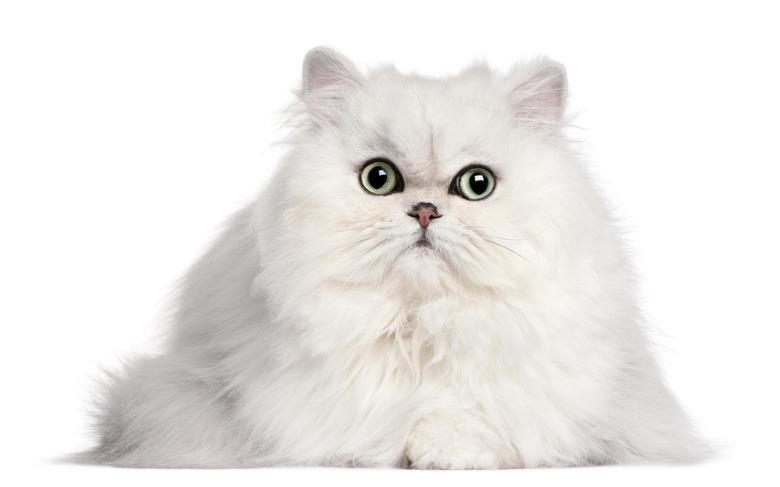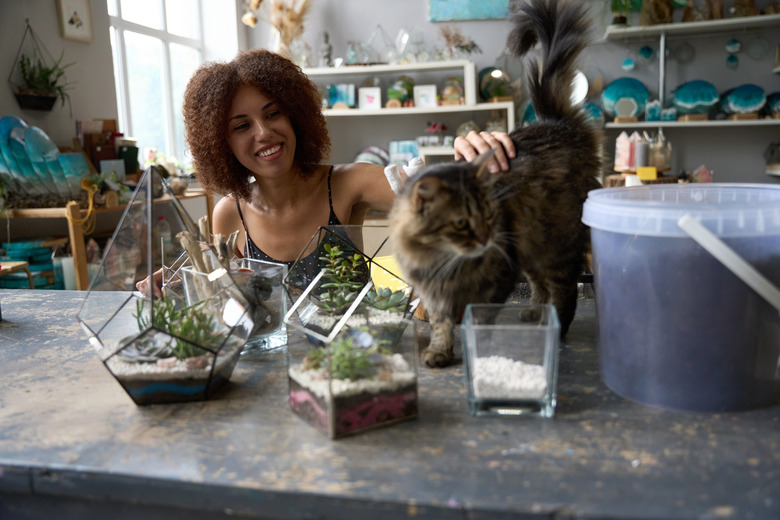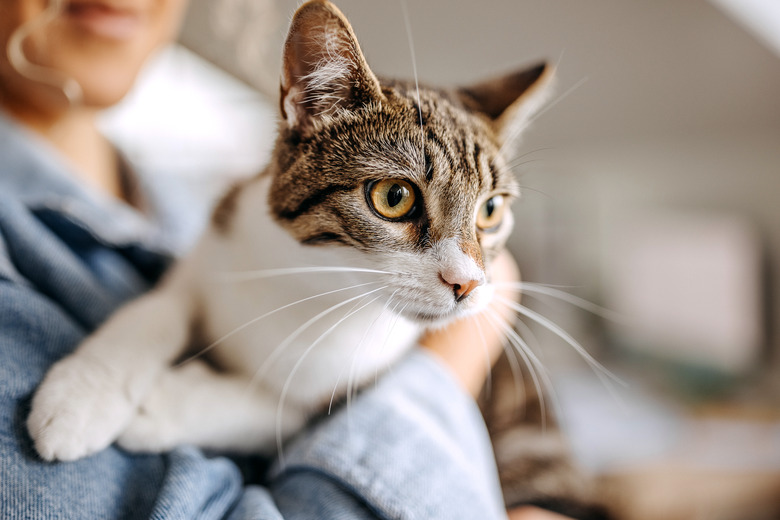Why Does My Cat's Pee Smell Sweet?
Cat urine is known to have a strong smell. That's because compared to dogs and humans, they have more concentrated urine. Though there are a variety of reasons for there to be a change in how a cat's urine smells, when cat pee smells sweet, that is a specific warning sign for diabetes.
Is it normal when cat pee smells sweet?
Is it normal when cat pee smells sweet?
No, it is not normal when cat urine smells sweet. If your cat's urine smells sweet, they may have diabetes mellitus and should be taken to your veterinarian right away. When a diabetic cat has high blood sugar and it's not regulated, they can develop a buildup of ketones in their blood. Ketones form when the body uses body fat for energy. Extreme ketosis causes a life-threatening situation called diabetic ketoacidosis. Because the ketones spill over into the urine, you may notice its sweet smell.
Kidney disease symptoms in cats
Kidney disease symptoms in cats
In the earliest stage of chronic kidney disease, cats may have no symptoms. But with the current lab tests available, early kidney disease can be detected. It's a good idea for cats who are 7 years and older to have annual blood and urine tests as part of their wellness checkup.
The most common symptoms of kidney disease are increased water intake and increased urination. As the kidneys stop working properly, they can no longer store water efficiently, so the cat must urinate more often. As a result of the loss of water, the cat's thirst increases. The cat may make more visits to the litter box and may start urinating outside the litter box.
Without treatment, the cat will start showing signs of uremic poisoning, which include:
- Vomiting
- Lethargy
- Decreased appetite
- Ammonia-smelling breath
Uremic poisoning is fatal if it is not treated early.
Sweet-smelling urine and diabetes in cats
Sweet-smelling urine and diabetes in cats
In cats who have diabetes, their bodies either do not produce enough insulin, or their body stops responding properly to the insulin (insulin resistance.) This causes high levels of glucose to remain unused in the body. As a result, the body will start breaking down fat for energy. This results in the formation of ketones, which end up in the urine. Ketones have a sweet, fruity smell.
Is my cat's strong-smelling urine a symptom of a urinary tract infection?
Is my cat's strong-smelling urine a symptom of a urinary tract infection?
Though that is one possibility, strong-smelling urine is not always a symptom of a urinary tract infection (UTI). Common causes for strong-smelling urine are:
- High-protein diet: It's normal for cats to eat a high protein diet because they are obligate carnivores. As a result, their urine normally has an ammonia smell. This is because when protein is broken down into amino acids, one of the byproducts is urea. When urea breaks down, it releases ammonia gas.
- Dehydration: Your cat's urine might smell strong because they're dehydrated, which causes the urine to be more concentrated.
- UTI: The presence of bacteria and blood in your cat's urine can cause foul-smelling urine.
- Diabetes: When a cat's blood sugar level stays high for too long, ketones can end up in the urine, and you will notice a sweet smell. Diabetic cats are also more prone to UTIs.
- Unneutered male cats: The urine of tom cats smells strong due to hormones.
When should I be concerned about changes in my cat's urine smell?
When should I be concerned about changes in my cat's urine smell?
If there has been any change in the way your cat's urine smells or looks, contact your veterinarian. Changes in urine odor are cause for concern until your veterinarian determines otherwise. Though some causes aren't serious, such as a change to a higher-protein diet, other reasons are serious, such as diabetes. It's also good to know that the ammonia smell of cat urine gets stronger the longer urine sits in your cat's litter box.
Change in urine appearance can also indicate that your cat has a medical condition. If you notice your cat's urine is pink or red-tinged, that means there is blood present. (There can also be blood without an obvious color change.) This can indicate the possibility of cystitis (inflammation of the lining of the bladder, ) a UTI, bladder crystals and/or stones, or rarely, a bladder tumor.
You should also be concerned if your cat's urination habits have changed, like if they start to urinate outside of the litter box. If your cat is straining to urinate, vocalizing while in the litter box, frequently visiting the litter box, or only producing small amounts of urine, your pet needs to be seen by a veterinarian right away. If this is happening to your male cat, consider it an emergency until determined otherwise. Male cats are more likely than females to develop an obstruction in their urethra, which is a painful and life-threatening situation.
In any cases of a change in your cat's urine, they will need an exam, a urinalysis, and likely bloodwork and X-rays. When scheduling your appointment, ask if your veterinarian wants you to collect a fresh urine sample to bring to the appointment. Depending on what your veterinarian finds, your cat may need to start medication, a special food, and/or supplements.
The bottom line
The bottom line
If your cat has sweet-smelling urine, they need to see a veterinarian right away. Cat urine that smells sweet is suggestive of unregulated diabetes, and this can be an emergency. Other changes in urine odor or appearance, such as stronger-smelling urine or red urine, can also indicate something is amiss with your cat's health. Pet parents should consider any changes in urine or urination habits to be cause for calling their veterinarian.


